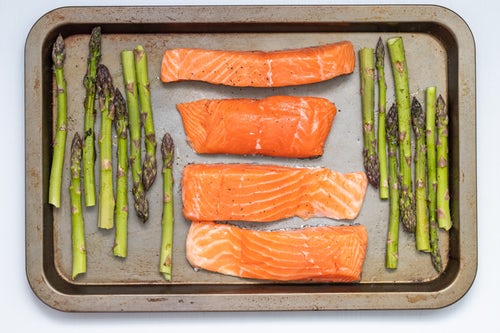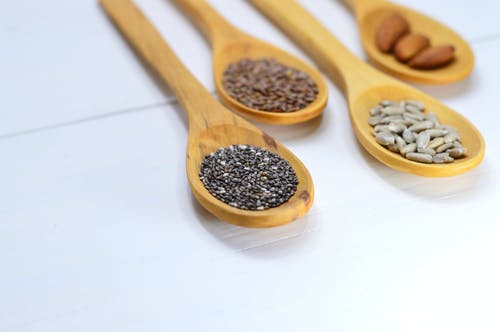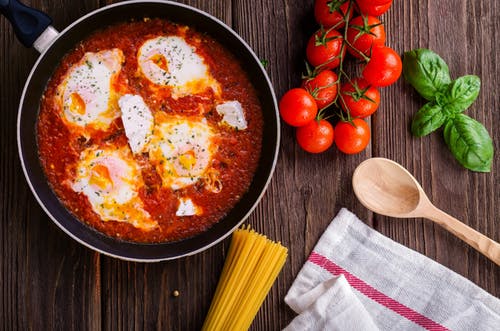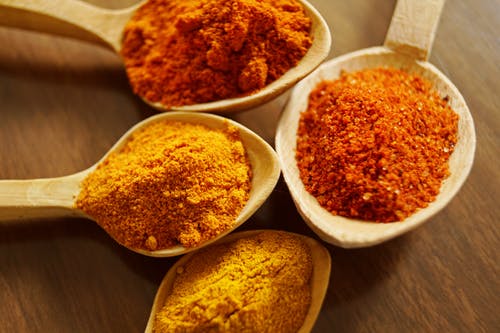When I was living with anorexia nervosa, I was told countless times that I had been sick for such a long time that my brain had completely changed, and the chances of a full recovery were next to impossible.
While part of this was true, I had been sick a long time (almost 15 years, which at the time constituted my entire adult life) and my brain certainly had changed because of this, what wasn’t true was the notion that my past and even my present would determine what I would or would not be capable of in the future.
The very fact that my brain had changed surely proved what drastic changes a brain is capable of and begged the question if it could change so drastically to accommodate anorexia nervosa why couldn’t this also go in the reverse direction and undo this equally as well?
What I wish someone had told me instead was that it doesn’t matter how long you’ve been sick.
What I wish someone had told me instead was it doesn’t matter how many times you’ve tried to recover.
What I wish someone had told me instead was that all that matters is your decision now.
Because that is the truth.
We know our brains are malleable and changeable.
Once scientists believed that after childhood the brain became fixed, patterns and habits were set up and we became unchangeable, but we now know differently.
We now know beyond any doubt, it’s not even slightly controversial that our brains are changing our entire life.
While it may be at a lesser rate than childhood, we are definitely growing new neurons, forming new connections and thinning others until the day we die.
Neuroplasticity and neurogenesis are in practical terms what allow for your brain to learn new things and change from doing things one way to doing them another way based on the input and feedback it is receiving.
The Role of Neurogenesis and Neuroplasticity

There isn’t anything which affects our physiology and psychology quite like food and what we eat has the capacity to either enhance or limit our health (including our neuroplasticity and neurogenesis) because it is affecting our biology 24 hours a day 7 days a week at the system, organ, cellular and subcellular level.
While food is certainly not the be all and end all of health (or neuroplasticity and neurogenesis) it goes a long way towards ensuring your physiology is set up and supported and indeed has the capacity to even do what you want it to do.
In this post I am going to share with you 5 everyday foods you can begin to include in your diet today to enhance the natural neuroplasticity and neurogenesis of your brain.
Why? Because since recovering from anorexia nervosa, I have become fascinated with what it is that allows for some people to learn, adapt and succeed while others stay stuck (in many areas of life not just in recovery from eating disorders) and while the nuances of individual circumstance are vast and varied to me the ability to change and overcome extreme life events and struggles comes down to two vital ingredients: neuroplasticity and neurogenesis.
As well this I have added a few additional tips outside of the realm of nutrition to support your brain health and genuinely fuel your best life.
I want to quickly give you a few reasons why you should be excited to enhance your brains capacity for neuroplasticity and neurogenesis in the first place.
Why Should I Be Interested in Increasing Neuroplasticity and Neurogenesis?

Learning how to use my brain is what allowed me to finally recover from anorexia nervosa.
Whether it’s something this drastic you’re struggling with or an annoying habit you’d like to break, you’d like to learn and retain information easier, develop better communication skills and enhance your relationships or be more resilient against stress and prevent setback with failure, feel happier to give things a go without the fear neuroplasticity and neurogenesis are the way your brain becomes capable of doing these things.
There is also the added benefit that enhancing neurogenesis and neuroplasticity may protect against such neurodegenerative diseases including Alzheimer’s Disease, memory loss and cognitive decline.
5 Top Foods for Enhancing Neurogenesis and Neuroplasticity
- Chocolate

Cacao is a rich source of all sorts of vitamins and minerals but when it comes specifically to that that help with neurogenesis and neuroplasticity the focus here is on its high antioxidant content (in particular the flavonoids epicatechin and catechin1).
Antioxidants help protect our brain cells from damage due to our body’s natural production of as well as environmental exposure to free radicals.
It also appears flavonoids penetrate and affect the hippocampal region of the brain through enhancing blood flow and neurogenesis in this region. The hippocampus is involved with memory and learning and if we can prevent damage here and enhance neurogenesis, we potentially prevent a lot of cognitive decline and decrease our risk of developing Alzheimer’s disease as well as stroke.
How Much Do I Need to Eat?
One research paper suggests 48g of 70% dark chocolate enhances neuroplasticity for behavioural and brain health benefits2. I’d not recommend basing your chocolate consumption of one research paper however if it’s something you enjoy there are many ways of adding cocoa to your daily diet including as a hot chocolate, in baking or smoothies.
2. Oily Fish

Oily fish is one of those foods which has been top of the superfoods list for a long time due to it’s being a great source of polyunsaturated fats, in particular omega-3 fatty acids.
Omega-3 fatty acids are an important component of the cell membranes of every cell of your body and when it comes to your brain you might be interested to know that your brain is made up of more cells supporting your neurons (the nerve cells) than it is neurons themselves.
These cells supporting your neurons are called glial cells and are important because although they cannot discharge electrical impulses on their own, they can change the behaviour of the neurons. One way in which they do this is through the production of myelin sheaths.
A particular type of glial cell called oligodendrocytes produce myelin sheaths which are made of fat and protein and surround the axons of your nerve cells to allow for electrical impulses to transmit quickly and smoothly along and between nerve cells. This is where omega-3 fatty acids come in because these types of fats seem to be superior as compared to other fatty acids when incorporated into the myelin sheaths and in rat models have been shown to be effective at protecting the brain cells and promoting neurogenesis3.
How Much Do I Need to Eat?
Consider including oily fish (for example salmon, sardines and mackerel) 2-4 times a week. You can also get omega-3s from nuts and seeds (including chia seeds and flaxseeds) and soybeans.
3. Nuts and Seeds

The important constituent within nuts and seeds we’re looking at when it comes to brain health is vitamin E.
Vitamin E is best known for its anti-inflammatory properties4 and in the brain appears to enhance neuroplasticity and neurogenesis through cell proliferation and promoting survival of these new cells5.
How Much Do I Need to Eat?
A daily handful of mixed nuts and seeds is a great place to start (for example walnuts, almonds, brazil nuts, pepitas, sunflower seeds, flaxseeds, chia seeds).
4. Eggs

Egg yolks are a good source of many nutrients important to brain function (including vitamin B12, B6 and folic acid). When it comes to neuroplasticity and neurogenesis the one, we’re going to focus on here is choline.
Choline is a micronutrient your body uses to produce one of the neurotransmitters acetylcholine, which is important in regulating mood and memory. It is also an important precursor for the synthesis of membrane phospholipids including myelin production as well as cell signalling6.
How Much Do I Need to Eat?
The adequate intake (AI) for choline is 425mg/day and 550mg/day for women and men respectively 19 years and older6. For an idea of what this looks like in terms of food the yolk of one egg contains 112mg.
Other foods which are rich in choline include milk, peanuts and liver.
5. Turmeric

Curcumin a polyphenolic compound found in turmeric possesses anti-inflammatory and antioxidant properties and has been shown in animal models to offer protection against neurodegenerative conditions and enhancement of neuroplasticity and neurogenesis through enhancing brain derived neurotrophic factor7-13 (a hormone which helps brain cells grow).
How Much Do I Need to Eat?
There are no specific guidelines and I’d recommend adding in a few different forms of turmeric here and there such as adding dried powdered turmeric to your curries or fresh grated turmeric to your smoothies or on top of yoghurt with a drizzle of honey.
Some Extra Tips on Enhancing the Neurogenesis and Neuroplasticity of Your Brain
Sleep
Sleep deprivation inhibits cell proliferation and neurogenesis.
I can’t stress this one enough.
It is so important to get enough sleep.
Many people will try to “hustle” and “grind” their way into success by cutting down on healthful behaviours to have more time to work but in the long run we know this doesn’t hold up.
We’ve all had the frustrating experience of doing a task which may take you just 20minutes when you’re wide awake, motivated and focused taking much longer (and probably doing a job we have to come back and fix anyway) when you’re sleepy and unfocused.
Exercise
Exercise increases blood flow to your brain, and it is in blood where all the nutrients necessary for building new brain cells are carried therefore regular exercise (non-extreme) increases the structural plasticity of your brain as well as neurogenesis.
Connection and love.
Humans evolved to live together and there is nothing which lights up our brains more than feeling loved, connected and as though we belong to something greater than ourselves.
Choose to spend quality time with those you love over everything else.
Sex
Perhaps the epitope of human connection and love is sex. Sex releases a swathe of wonderful feel good hormones and neurotransmitters all of which let our brains know we are safe and when we are safe we open up the door to explore and learn.
Sex promotes cell proliferation and neurogenesis.
Decrease Stress
Chronic stress decreases neurogenesis.
Learn to set healthy boundaries and say no to things you don’t want to do or don’t have time to do.
Take time for you.
Hypnosis
This can follow on from all of the above points especially decreasing stress because we are so often told to decrease our stress levels or that if you reduce your stress you’d be so much more happy and healthy but no matter how much we may see the value in decreasing stress and actually want to decrease stress the “how to” remains utterly elusive.
We live busy lives, we all do. At any given moment there is an endless stream of things going on which we have to attend to, remember or plan for. Living a stress-free life in terms of not having any outside stressors is impossible and is not in my eyes the goal. Hypnosis gives us a real and practical means of enhancing our reaction to stress and the effect it has over our body, quickly, safely and permanently.
A skilled hypnotherapist will facilitate you to connect to your inner guidance, values and sense of purpose so that in any given moment you have full access to these allowing you greater ease in decision making, sense of peace and calmness.
Clinical hypnotherapy can also give you greater control over your body’s functions (it’s frequently used during childbirth, to reduce high cholesterol and blood pressure, during and post-surgery to decrease pain and enhance healing) which means that with hypnotherapy we have a very real means by which we can reduce our physiological response to stress.
Perhaps most significantly hypnosis opens up an altered state of consciousness in which we become more curious, more childlike, more focused and willing to give things a go, willing to fail and try again and therefore far more likely to learn and succeed.
There is no time in life in which we learn faster than childhood because there is no state more conducive to learning than curiosity.
Take Home Points

At the end of the day there is nothing greater to enhancing neuroplasticity and neurogenesis than practice.
Our brains learn best from our behaviours.
Feed your brain well but also remember to get out there and give life a go!
With my whole heart I hope you found this information useful and inspiring.

Become Great. Live Great.
Bonnie.
Reference
- Nehlig A.The neuroprotective effects of cocoa flavanol and its influence on cognitive performance. Br J Clin Pharmacol. 2013 Mar; 75(3): 716–727.
- Berk L, Miller J, Bruhiell K, Dhuri S, Patel K, Lohman E, Bains G and Berk R. Dark chocolate (70% organic cacao) increases acute and chronic EEG power spectral density (μV2) response of gamma frequency (25–40 Hz) for brain health: enhancement of neuroplasticity, neural synchrony, cognitive processing, learning, memory, recall, and mindfulness meditation. FASEB Journal. 2018:32.
- Kawakita E, Hashimoto M, Shido O. Docosahexaenoic acid promotes neurogenesis in vitro and in vivo. Neuroscience. 2006; 139: 991-997.
- Oyarce K, Bongarzone ER, Nualart F. Unconventional neurogenic niches and neurogenesis modulation by vitamins. J Stem Cell Res Ther2014;4:184.
- Ambrogini P, Betti M, Galati C, Di Palma M, Lattanzi D, Savelli D, Galli F, Cuppini R, Minelli A. α-Tocopherol and Hippocampal Neural Plasticity in Physiological and Pathological Conditions. Int J Mol Sci. 2016 Dec 15;17(12):2107.
- Institute of Medicine (US) Standing Committee on the Scientific Evaluation of Dietary Reference Intakes and its Panel on Folate, Other B Vitamins, and Choline. Dietary Reference Intakes for Thiamin, Riboflavin, Niacin, Vitamin B6, Folate, Vitamin B12, Pantothenic Acid, Biotin, and Choline. Washington (DC): National Academies Press (US); 1998. 12, Choline.Available from: https://www.ncbi.nlm.nih.gov/books/NBK114308/
- Kumar A, Naidu PS, Seghal N, Padi SS (2007) Effect of curcumin on intracerebroventricular colchicine-induced cognitive impairment and oxidative stress in rats. J Med Food 10: 486–494.
- Ishrat T, Hoda MN, Khan MB, Yousuf S, Ahmad M, et al. (2009) Amelioration of cognitive deficits and neurodegeneration by curcumin in rat model of sporadic dementia of Alzheimer’s type (SDAT). Eur Neuropsychopharmacol 19: 636–647.
- Xu Y, Lin D, Li S, Li G, Shyamala SG, et al. (2009) Curcumin reverses impaired cognition and neuronal plasticity induced by chronic stress. Neuropharmacology 57: 463–471.
- Reeta KH, Mehla J, Gupta YK (2009) Curcumin is protective against phenytoin-induced cognitive impairment and oxidative stress in rats. Brain Res 1301: 52–60.
- Kuhad A, Chopra K (2007) Curcumin attenuates diabetic encephalopathy in rats: behavioral and biochemical evidences. Eur J Pharmacol 576: 34–42.
- Baum L, Lam CW, Cheung SK, Kwok T, Lui V, et al. (2008) Six-month randomized, placebo-controlled, double-blind, pilot clinical trial of curcumin in patients with Alzheimer disease. J Clin Psychopharmacol 28: 110–113.



